Elizabeth Becker works in watercolor; describing it as “a living medium” whose spontaneity and immediacy teach her to let go, become present in the moment, and embrace imperfections. Emotional release and expressive experimentation are important to her process. Working loosely and viscerally, she relinquishes control, allowing the paint to have a life of its own, as colors bleed together and slowly bloom. Knowing when to stop is essential to capturing the essence of her subjects and Elizabeth expertly finds the point where there is just enough information displayed, never overworking her paintings.
Can you tell us about your work?
Nature, emotion, and the human condition influence my work. Inspired by the interplay between the physical and spiritual realms of a subject, my paintings tend to blur the lines between representation and abstraction. I believe the use of abstraction gets us closer to the way things truly are, not just how they appear. My paintings have been described as serene, delicate, sensitive, and therapeutic.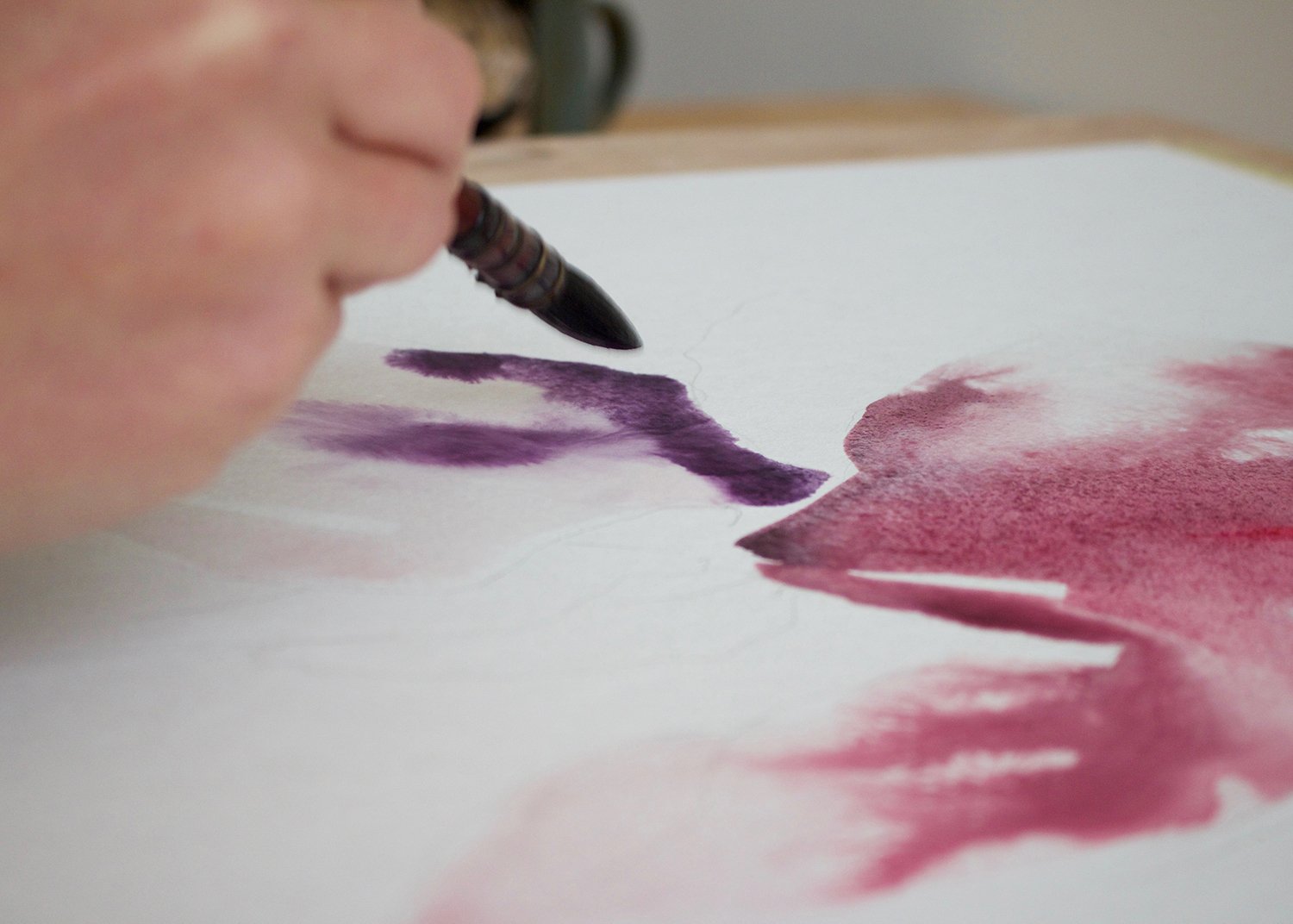
Can you tell us about your journey to becoming a professional artist?
I began painting when I was young and focused on art in high school. I went on to study fine art in college and earned a bachelor’s degree in both Art Education and Psychology. Watercolor was my last course in college and I fell in love with the medium. I worked in the teaching and mental health fields for a few years as I built my portfolio and began selling my work online in my spare time. I also helped my husband start a small woodworking company and learned more about the administrative side of running a business. A few years ago, I began exhibiting at art fairs. Over time, my business grew and I became a full-time artist.
When you are looking for inspiration, what resources do you turn to?
Nature, emotion, and spirituality are my greatest sources of inspiration. I take photographs while hiking and traveling that I use as references for my botanical and landscape paintings. I turn to self-portraits and art models as resources for my portrait and figure work. A watercolor mixing chart I made in my college watercolor course is useful for color inspiration. Listening to music while I work helps me to create mood and expression in my paintings.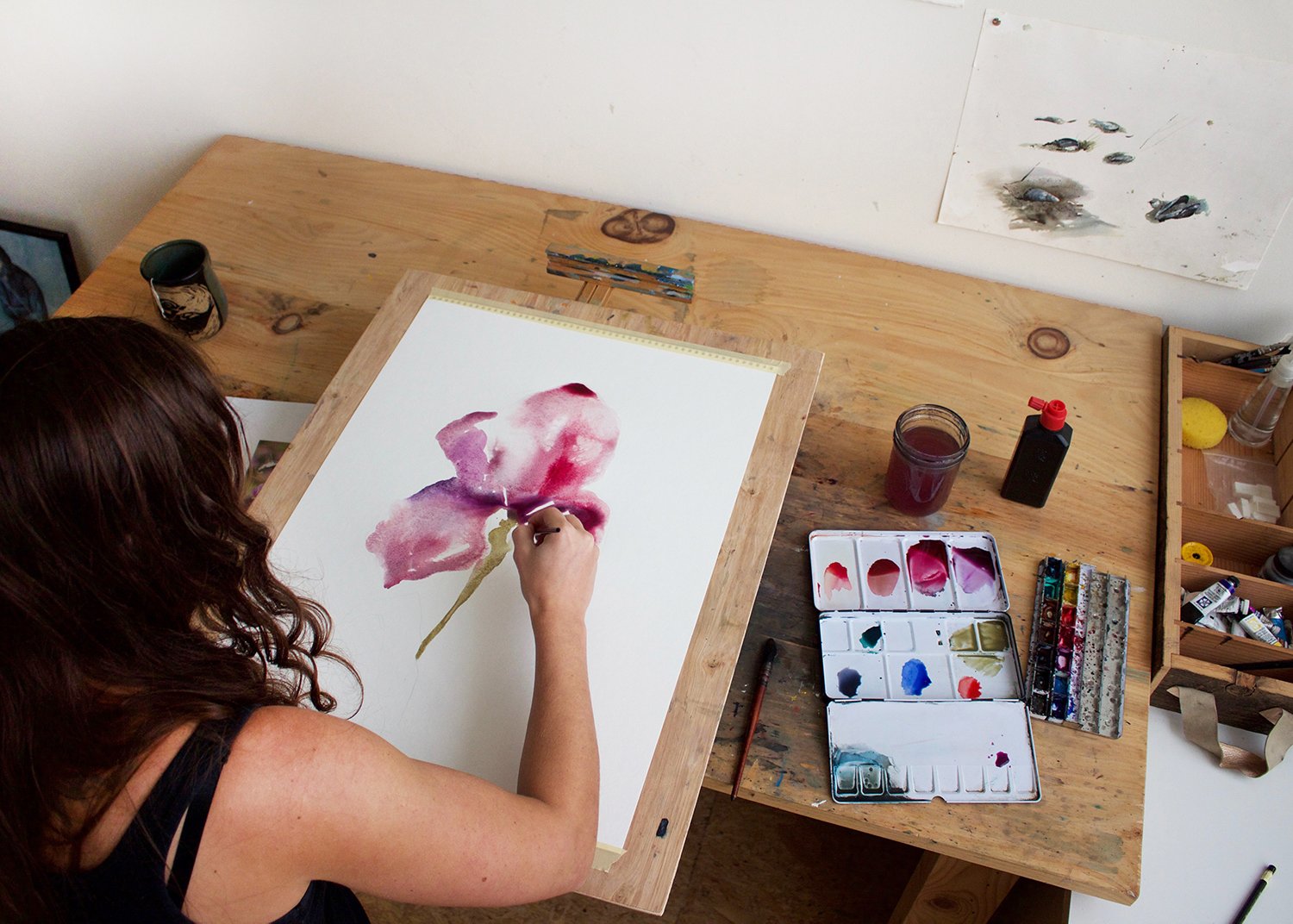
Walk us through a typical day in your studio. What is your routine?
I work by intuition rather than a fixed schedule, so each day is different. The variety keeps things interesting and enjoyable. I’m a night owl, so I often work late at night and wake up slowly. In the mornings, I check emails and make a schedule for the day, starting with any deadlines I need to meet, such as commissions, shipping orders, or art shows. When I feel inspired, I paint. I typically create a lot of work in a short period of time. When I’m finished, I feel creatively drained, so I work on listing artwork and other administrative tasks. It’s important for me to stay balanced and make time each day for exercise, yoga, and mental space to clear my head. I also travel for art fairs, so sometimes I’m on the road for a few weeks at a time.
Finding the right rhythm to be productive in the studio can be a challenge, what advice do you have for staying productive and focused?
I follow my inspiration in each moment. When I’m not in the mood to create, my paintings don’t feel inspired and the end result is unsuccessful. I would recommend setting a schedule for yourself every morning based on how you feel that day. As long as you’re consistently creating and sharing your work, meeting deadlines, and prioritizing responsibilities, you have a lot of freedom as a self-employed artist. It can be hard to continually motivate yourself, but remember that whatever works for you is perfect, even (especially) if it’s unconventional. I like to break up my day by practicing self-care. I’ll go for a hike, do yoga, or play piano in between projects if I start to feel burned out. Being flexible and taking time for myself helps me be more productive and efficient while working.
What advice do you have for combating creative block?
I try to stay out of my head and work from my heart. I believe people experience creative blocks because they’re overthinking and overanalyzing the process. A blank canvas can be intimidating, so I try to put something on it as quickly as possible without planning too much. I always keep a sense of play and experimentation in my work, and I value the process over the product, so it’s okay with me when a painting doesn’t turn out. I would recommend creating whatever you feel inspired by at the moment, no matter what it is. Don’t worry about following rules and standards. If you have difficulty loosening up, set a timer. At the beginning of my figure drawing courses, we would loosen up by drawing the figure in 20-50 seconds.
As an artist, how do you measure success? Can you recall a specific event in your career that made you feel successful?
I measure my success as an artist by whether I feel my paintings are an authentic reflection of my inner world. As an entrepreneur, I measure my success by whether I’m able to make a living as an artist. The biggest milestone in my career was when I was able to quit my day job and focus on my artwork full-time.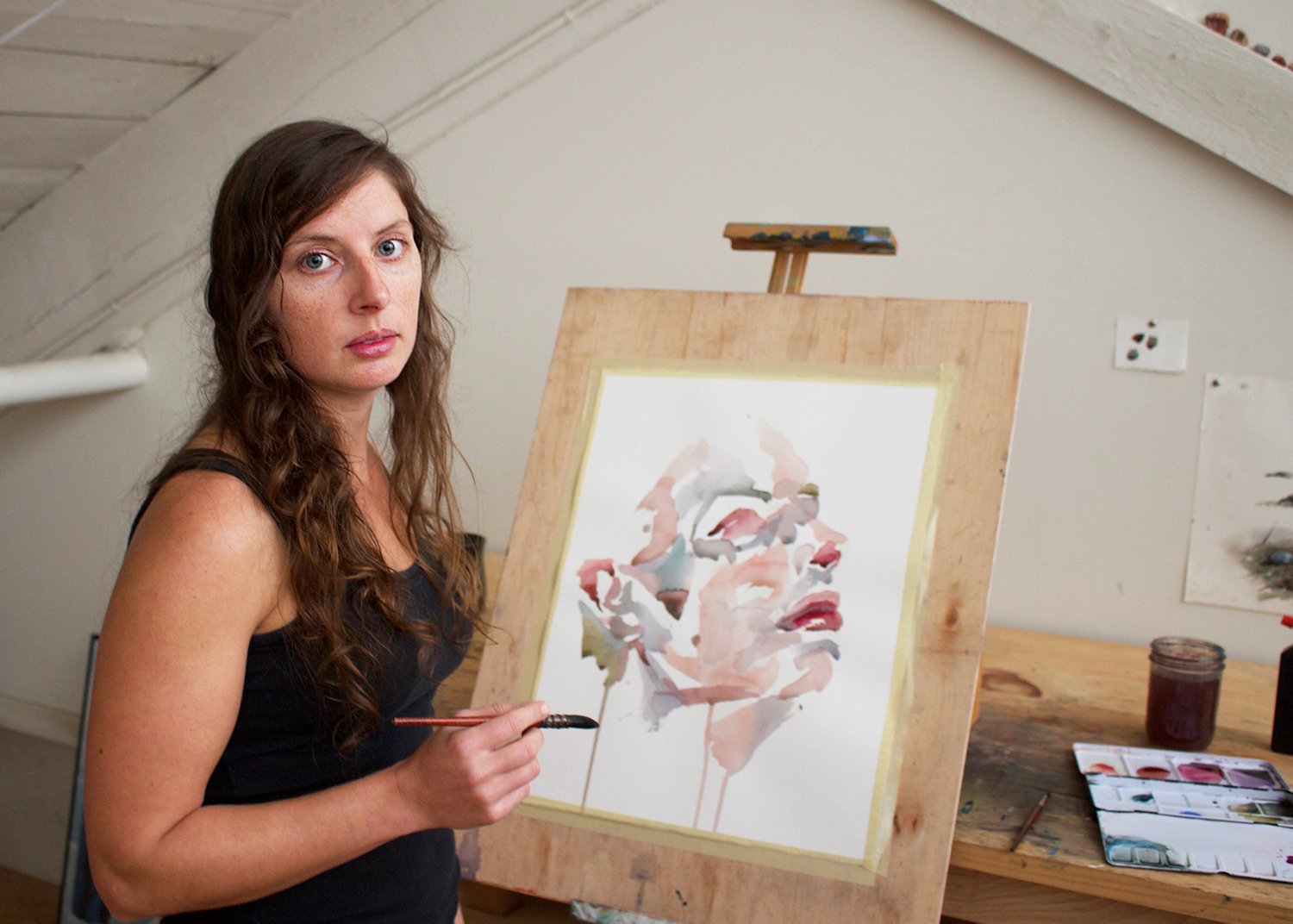
How do you see the art market changing? Where you do see yourself in this transition?
There are many online opportunities for artists to show and sell their work internationally, rather than working exclusively with a single physical gallery. As an independent artist, I feel I have a lot of freedom to represent myself and make my own creative decisions.
What advice do you have for artists who are beginning to build their careers?
Staying true to yourself and being authentic are the most important things as an artist. With every decision I make, I go inward and ask myself if the project is in alignment with my spirit and intuition. Taking walks, spending time in nature, and doing yoga are helpful ways to ground myself and tune in to how I’m feeling. Additionally, sharing my artwork online has been very important to growing my business. Taking high-quality photographs that accurately represent your artwork is key for online sales, as well as building a professional e-commerce website. I would recommend selling your work on various platforms, marketplaces, and art fairs to find out which options are the best fit for you.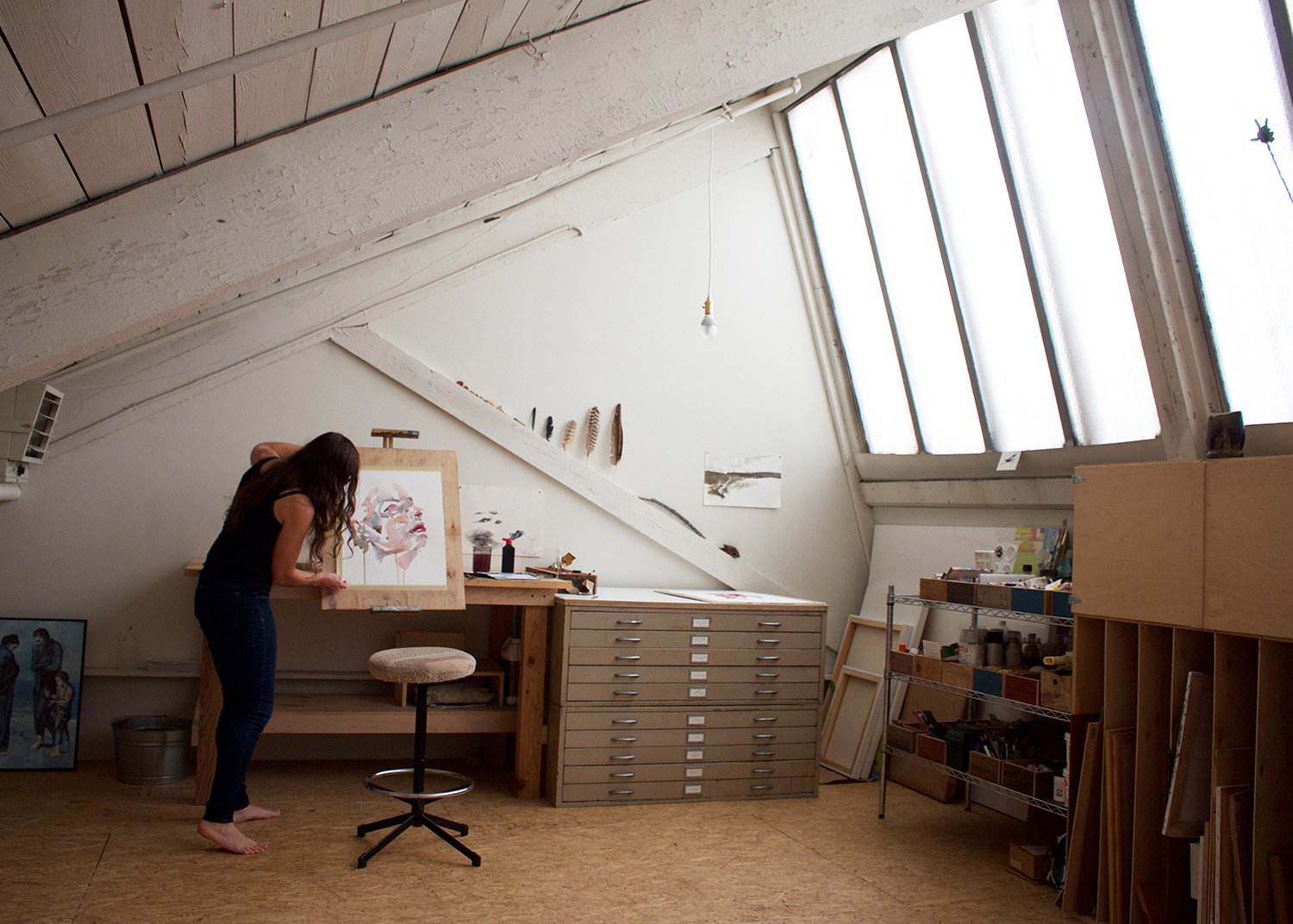
Do you consider yourself, and all artists, to be entrepreneurs? Why or why not?
I consider myself an entrepreneur because I run my own business, but not all artists do and that’s perfectly fine. You definitely don’t need to sell your art to be an artist. You can also seek gallery representation or hire someone to sell your artwork for you. If you feel like relying on your artwork for income will change your relationship with the creative process and make it less enjoyable, you might not want to pursue it professionally. For me personally, it’s a very fulfilling and rewarding career.
Failure is an inevitable part of success in any field. Do you have advice for overcoming setbacks?
Believe in yourself and do what you love, no matter what others think or how they respond. Take constructive criticism into account and leave the rest behind. Sometimes it only takes one opportunity, experience, platform, or person to help make your work a success. Keep putting yourself out there and experimenting with what works and what doesn’t. 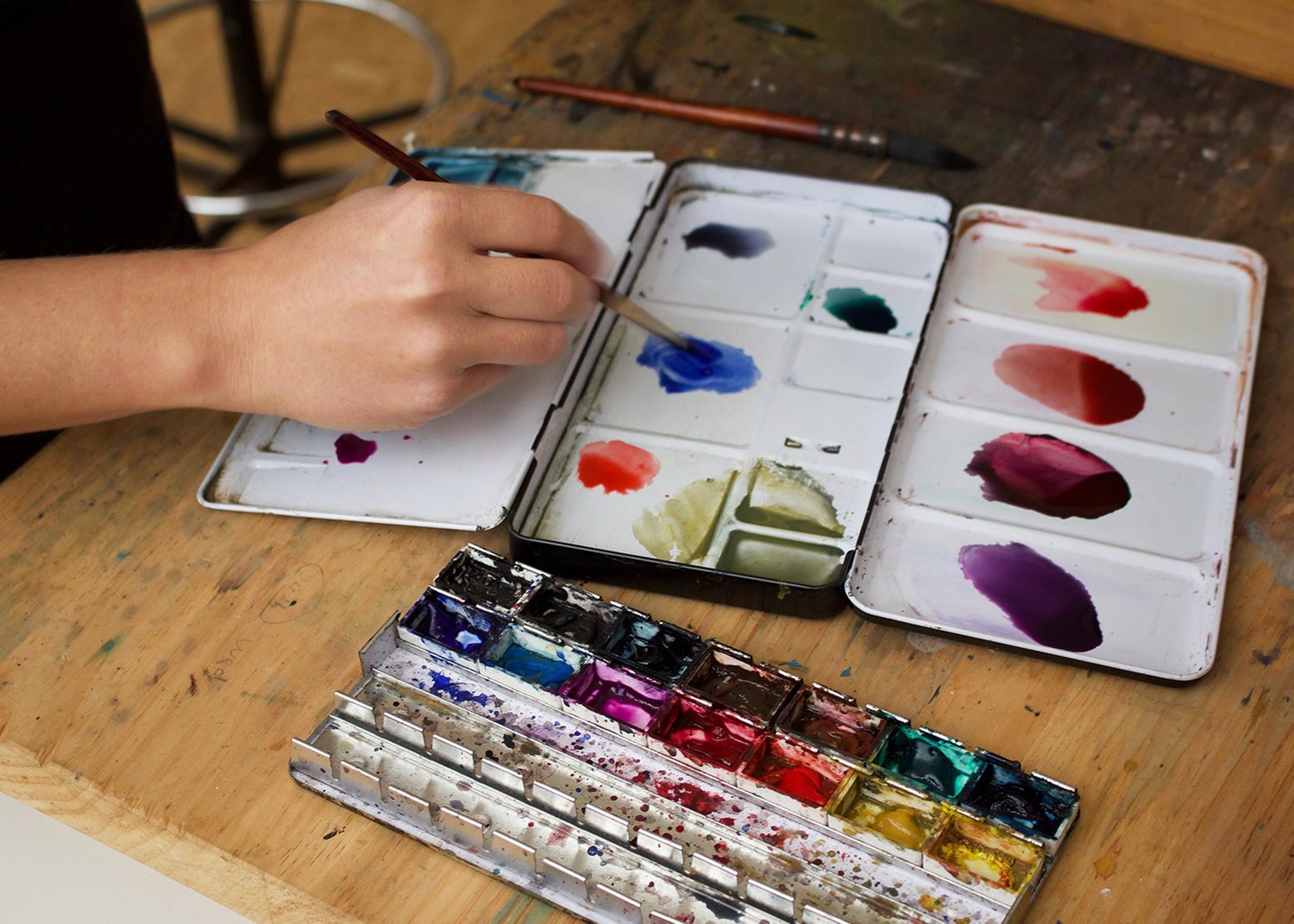
What sparked your interest in partnering with TurningArt?
TurningArt connects artists with designers, businesses, organizations, and public spaces nationwide. It’s important for me to share my work on different platforms where clients and collectors can potentially find my work who would not have otherwise seen it.
What does having your artwork in the workplace and other commercial or public spaces mean to you?
My hope is that my paintings have a calming, therapeutic effect on people and inspire them to reflect on their inner experiences. It would mean the world to me if people could experience that feeling as they go about their everyday lives.
To see more featured TurningArtists, return to our blog. To get Elizabeth's art in your space, set up a free consultation with an Art Advisor here!
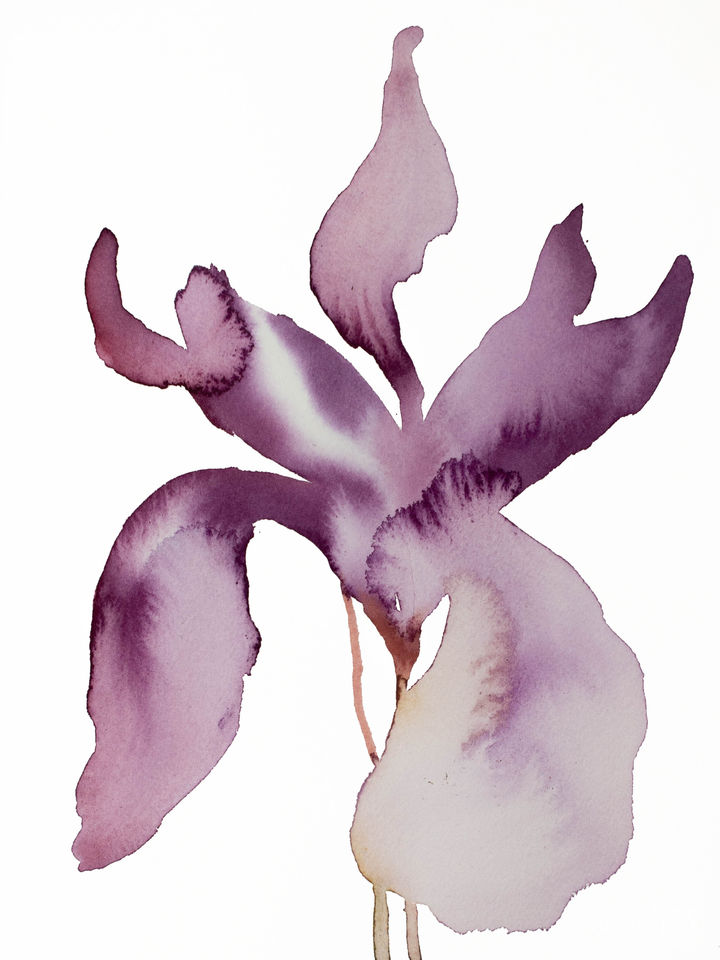
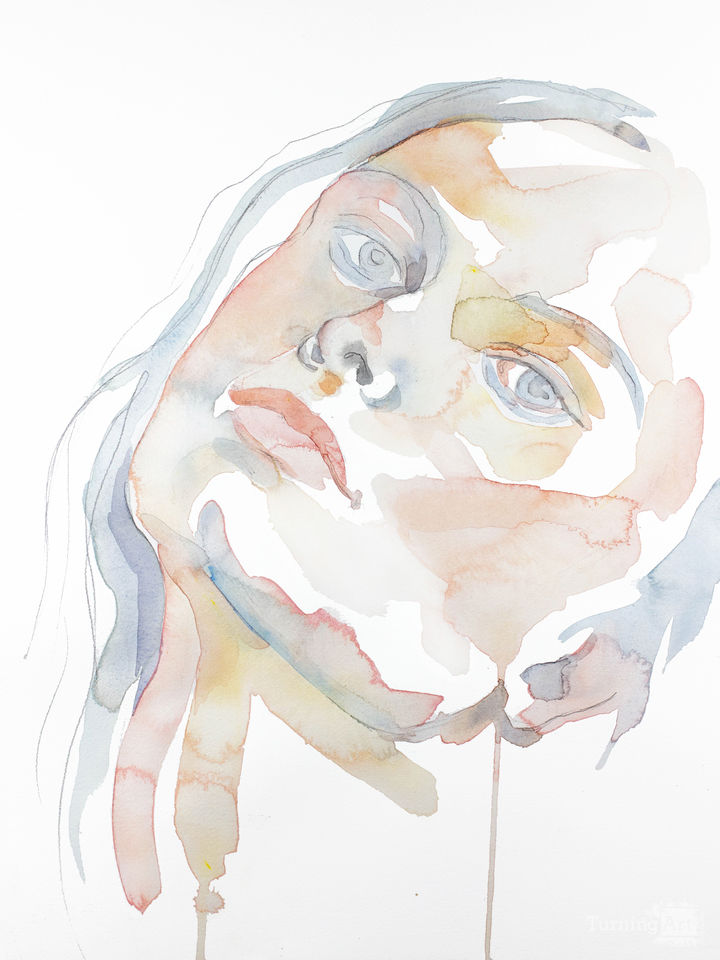

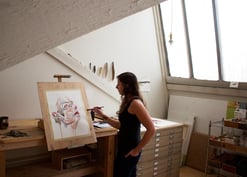

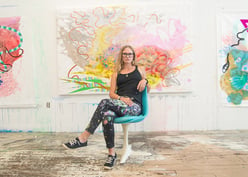

.jpg?width=332&height=177&name=%E6%A9%983-2%20(1).jpg)
